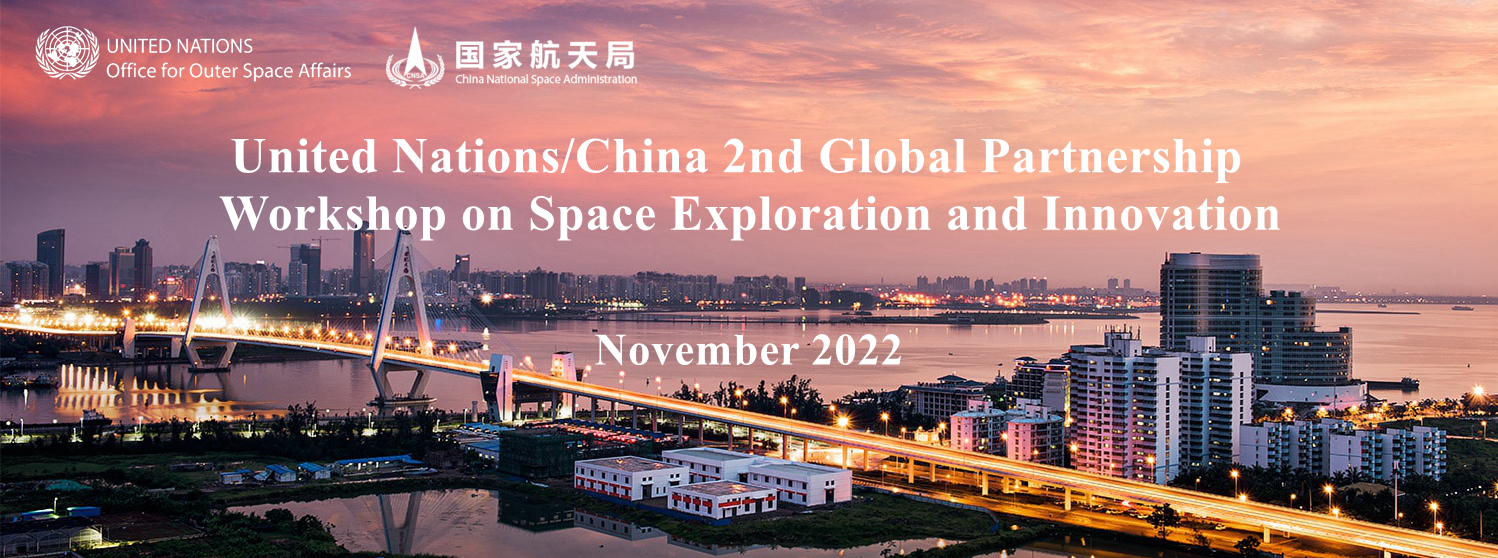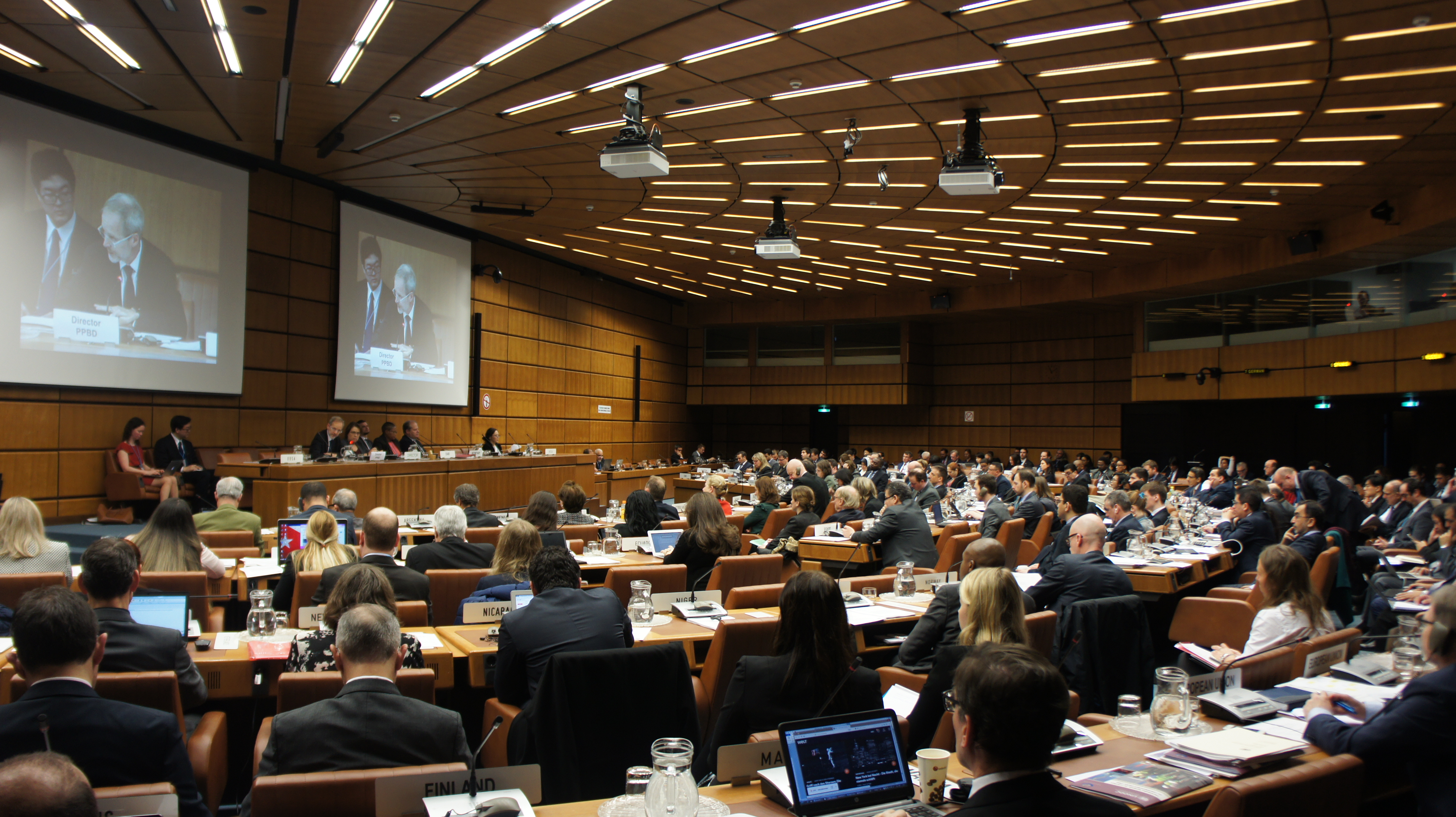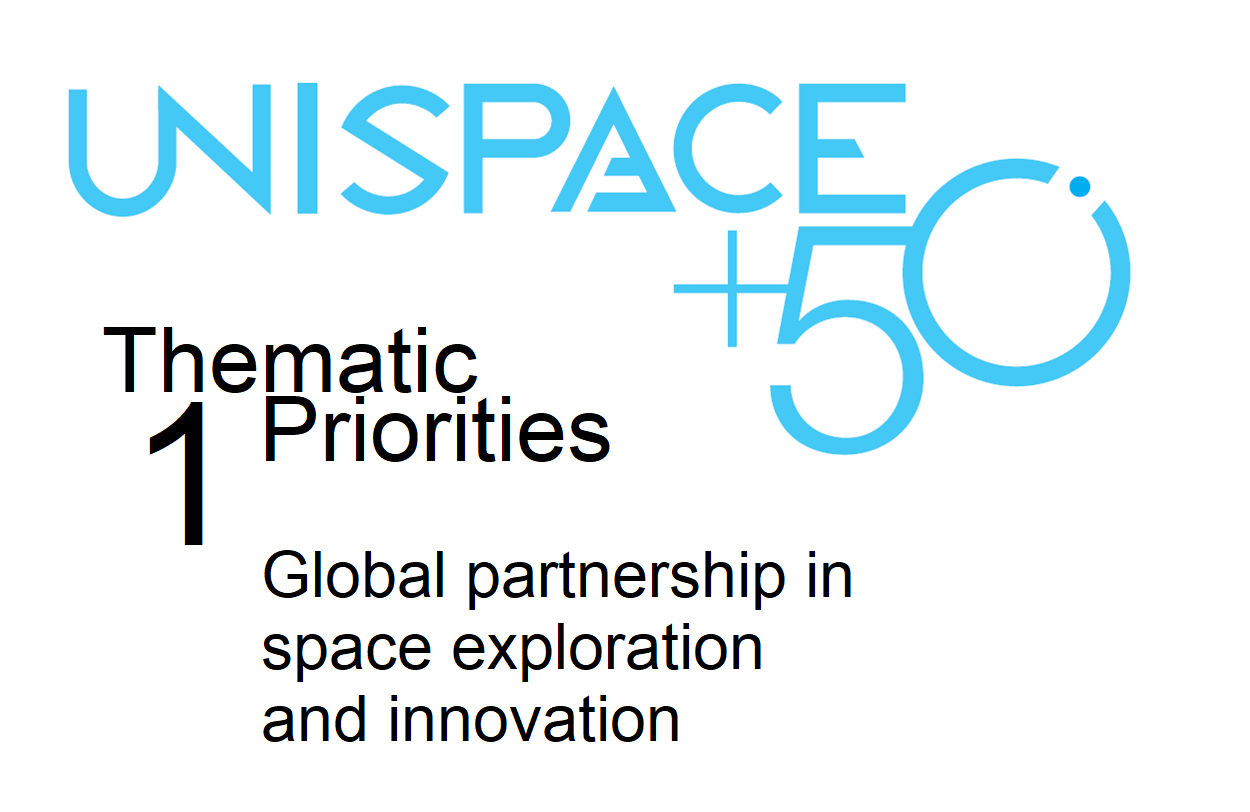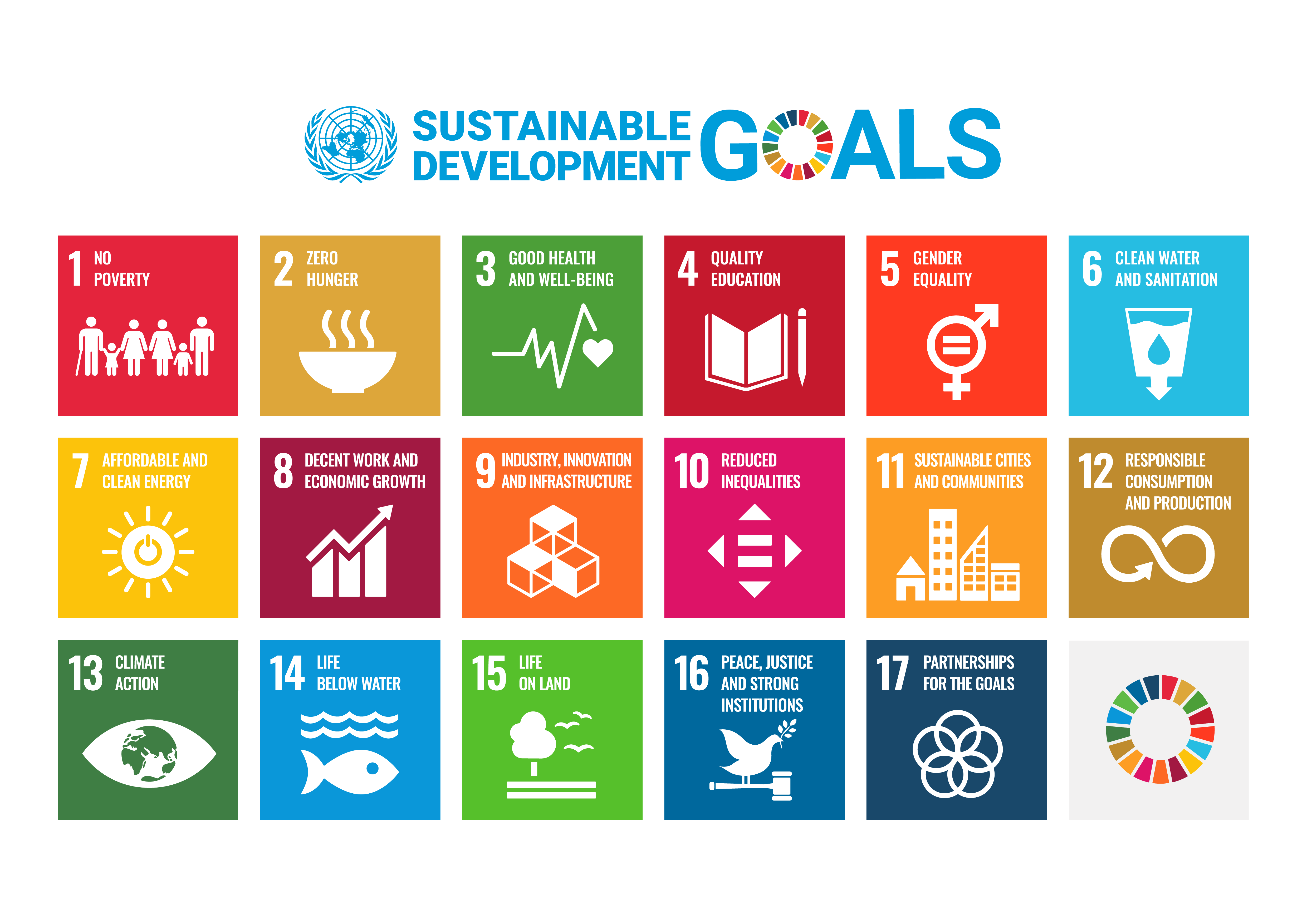
United Nations/China 2nd Global Partnership Workshop on Space Exploration and Innovation
21 - 24 November 2022
/ Virtual via a WebEx platform for participants based outside China
/ Haikou, China, a venue available for participants based in China
Hosted by the United Nations Office for Outer Space Affairs and the China National Space Administration
Programme of the Workshop
Please find the programme, presentation and information of speakers
here.
Report of the Workshop
Read the Report on the United Nations/China Second Global Partnership Workshop on Space Exploration and Innovation
here.
Introduction

The Committee on the Peaceful Uses of Outer Space is the intergovernmental body established by the United Nations General Assembly to address international cooperation in the peaceful uses of outer space. The Committee, substantively serviced by UNOOSA, is comprised of both emerging space nations and established space powers. The Committee's growing membership, and the impressive number of space-related intergovernmental and non-governmental organizations actively supporting its work, reflect the increasing importance that space science and technology play in the daily lives of people around the world.
During its fifty-ninth session in 2016, the Committee endorsed seven thematic priorities leading to the fiftieth anniversary of the first United Nations Conference on the Exploration and Peaceful Uses of Outer Space (UNISPACE+50). Thematic Priority 1, Global partnership in space exploration and innovation, had the objectives of:
- Raising awareness of space exploration and innovation as essential drivers for opening up new domains in space science and technology, triggering new partnerships and developing capabilities that create new opportunities for addressing global challenges;
- Fostering dialogue with the space industry and the private sector;
- Promoting cooperation between spacefaring nations and emerging space nations;
- Allowing space exploration activities to become open and inclusive on a global scale; and
- Identifying governance and cooperation mechanisms to support this objective ( A/71/20, paragraph 296).
Action Team on Exploration and Innovation

Also in 2016, the Committee called upon States to put forward nominations to lead and co-lead a new action team, to be established under thematic priority 1. Austria, Canada, China, France, Germany, India, Italy, Japan, Jordan, Luxembourg, Pakistan, Poland, Qatar, Romania, Russian Federation, Saudi Arabia, South Africa, Switzerland, Tunisia, United Arab Emirates, United Kingdom of Great Britain and Northern Ireland, United States of America, Committee on Space Research, European Organisation for Astronomical Research in the Southern Hemisphere, European Science Foundation, European Space Agency, Inter-Islamic Network on Space Sciences and Technology, International Law Association, National Space Society and United Nations Environment Programme became members of the Action Team on Exploration and Innovation, with Jordan, China and the United States acting as Co-Chairs.
The Action Team's final terms of reference, made available to the Committee in 2017 in conference room paper A/AC.105/2017/CRP.21, captured fields of study and methods of work.The report on thematic priority 1 was before delegations in early 2018 at the fifty-fifth session of the Committee's subsidiary body, the Scientific and Technical Subcommittee ( A/AC.105/C.1/114). At the request of the Action Team on Exploration and Innovation, an updated version of the report was prepared for the sixty-first session of the Committee ( A/AC.105/1168) in June 2018. At that session, the Committee considered this report and its recommendations and agreed on the inclusion of a new regular agenda item, entitled "Space exploration and innovation" in its agenda ( A/73/20, para 364).
In 2019, the United Nations/Jordan Workshop on Global Partnership in Space Exploration and Innovation held in Amman from 25 to 28 March 2019, was jointly organized by the Office for Outer Space Affairs of the Secretariat and the Regional Centre for Space Science and Technology Education for Western Asia, affiliated to the United Nations. The Workshop built on the intergovernmental work previously undertaken by the Action Team on Exploration and Innovation and included cross-sectoral, capacity-building and strategic components. The report of the Workshop was prepared for the sixty-second session of the Committee ( A/AC.105/1208 ).
The Space2030 Agenda: space as a driver of sustainable development
On 25 October 2021, The resolution "Space2030" Agenda: space as a driver of sustainable development was adopted by the General Assembly ( A/RES/76/3).
On the basis of the results of the UNISPACE+50 process, a "Space2030" Agenda and implementation plan has been developed by the Committee and the Member States.
The resolution emphasized that space tools are highly relevant for the attainment of global development agendas, in particular the 2030 Agenda for Sustainable Development and its goals and targets, either directly, as enablers and drivers of sustainable development, or indirectly, by providing essential data for the indicators used to monitor the progress towards achieving the 2030 Agenda and the Sendai Framework for Disaster Risk Reduction 2015-2030 and the commitments by States parties to the Paris Agreement.
The resolution also emphasized that, in fulfilling the "Space2030" Agenda and implementation plan, importance is attached to global partnerships and strengthened cooperation among the Member States, United Nations entities, intergovernmental and non-governmental organizations, industry and private sector entities, to ensure that, through joint efforts and by taking advantage of the practical experiences and contributions of different stakeholders, the benefits of space will be brought to everyone, everywhere.
Workshop Objectives and Expected Outcomes

This present UN/China workshop was envisioned in the Action Team's terms of reference. It will have both strategic and capacity-building elements and will be informed by, and aim to produce observations and recommendations that will link with, various Sustainable Development Goals, including SDG4: Quality education; SDG5: Gender equality; SDG9: Industry, innovation and infrastructure; and SDG17: Partnerships for the goals, as well as with the "Space2030" agenda, which has been adopted by the General Assembly in 2021 ( A/76/L.3 ).
The main objectives of this workshop are:
- To raise awareness of space exploration and innovation as essential drivers for opening up new domains in space science and technology, triggering new partnerships and developing capabilities that can create new opportunities for addressing global challenges;
- To build capacity in space exploration and innovation, with emphasis on science, technology, engineering and mathematics (STEM), as per the recommendation of the Action Team on Exploration and Innovation, ( A/AC.105/1168, para. 114);
- To promote cooperation between spacefaring nations and emerging spacefaring nations; and
- To allow space exploration activities to become open and inclusive on a global scale.
Call for Abstracts
The completed application form, together with an abstract should be submitted via the online registration system to the Office for Outer Space Affairs, no later than 21 October 2022. Only complete applications with all the requested information will be considered.
*The online application form is now available. Please fill in and submit the form online. Please note when filling in the application form, applicants are required to submit an abstract. Qualified persons based in China are particularly encouraged to participate in the Workshop.
Successful applicants will receive an official invitation letter, including additional practical information.
Information Note
Please download the information note to read useful information.
Programme of the Workshop
Please find the tentative programme here .
Opening session: Covering the background and the objectives of the workshop.
Session 1: Space exploration and Innovation perspective
Space exploration activities have peaked in recent years and this journey of space exploration is not limited anymore to the developed nations. Thanks to an inclusive approach implemented by many space-faring countries, several developing, and space emerging nations are also delving into space exploration. The session will present space exploration efforts by international and national entities, space agencies, industry and civil society and reveal the latest and future approaches towards space exploration.
Session 2: International Laws and Policies in space exploration and innovation
The thriving space activities, with the emergence of new technologies and actors, bring legal issues in areas such as the exploration, exploitation and utilization of space resources, long-term sustainability of outer space activities, space traffic management, national regulatory framework, international cooperation mechanism, etc. This session will focus on the legal and policy aspects of space exploration and innovation.
Session 3a: Sustainable space exploration - Planetary Defence
Space debris and near-Earth objects are threatening the Earth and the observation environment is affected by large scale LEO constellations. A global joint observation effort could protect our life on the ground and the space assets. This session will present the efforts on observation and alleviation of the space debris and near-Earth objects possible impacts.
Session 3b: Sustainable space exploration - Planetary Protection
Space exploration aims to give answers to some of the fundamental questions that we are posing today. Is there life in other celestial bodies of the Solar System? Was there life? Planetary protection aims at protecting locations where life could have existed or existed today. This session will also cover the protection mechanism in place for returning samples to Earth through examples.
Session 4: Prospects and challenges in space science
Increasingly space exploration activities and the ever-decreasing threshold of space exploration continue to challenge our understanding of the unknown universe. More space science issues are repeatedly examined and constantly refreshed. Facing the future, we will have more unknowns waiting for us to explore. The prospects and challenges of space science research will be discussed in this session.
Special session: Lunar and Deep Space Exploration
A special session will focus on lunar and deep space exploration, achievements and planning, science and technology, human performance in lunar activities, international cooperation opportunities are expected to be presented in this session. This session will be held by CNSA.
Closing session: Closing remarks
Working Language
The working language of the Workshop will be English. English/Chinese simultaneously interpretation will be available in specific items.
Sponsorship
The Office for Outer Space Affairs and the China National Space Administration are organising the Workshop. It is supported by the Government of Hainan Province.
An in-person venue is available for participants in China, which will be hosted by the China National Space Administration and supported by the Government of Hainan Province.
Expected Participants
The Workshop is being planned for scientists, engineers, university educators, policy-and-decision makers, and senior experts from the following groups: international, regional, national and local institutions, United Nations agencies, intergovernmental and non-governmental organizations, research and development institutions, and industry. Others who are interested may also apply and all applications will be considered by the organizers.
In-person Attendance for participants at venue in Haikou, China
IMPORTANT: Due to the COVID-19 control policies of the host country, participants based outside China can only attend the Workshop through virtual platform.
An in-person venue is available for participants in China, which will be hosted by the China National Space Administration and supported by the Government of Hainan Province.
Those who are based in China will receive a separate invitation letter from China National Space Administration and may participate the Workshop from the in-person of the venue. In this connection, we remind all distinguished participants that they must comply with the local Covid-19 control policies.
Health insurance cover is necessary for each of the selected participants attending physically in China and is the responsibility of the candidate or his/her institution or government. UNOOSA will neither assume any responsibility for life and major health insurance, nor for expenses related to medical treatment or accidental events.
Contact Information
For additional information on the Workshop programme, please contact: Wenbin Zhang, United Nations Office for Outer Space Affairs ( wenbin.zhang[@]un.org).
The focal points for China are: Sun Lin ( sunlin_27[@]163.com) and Gan Yong (gany[@]cnsa.gov.cn). Please contact the Chinese Focal Points for other substantive and administrative local matters.